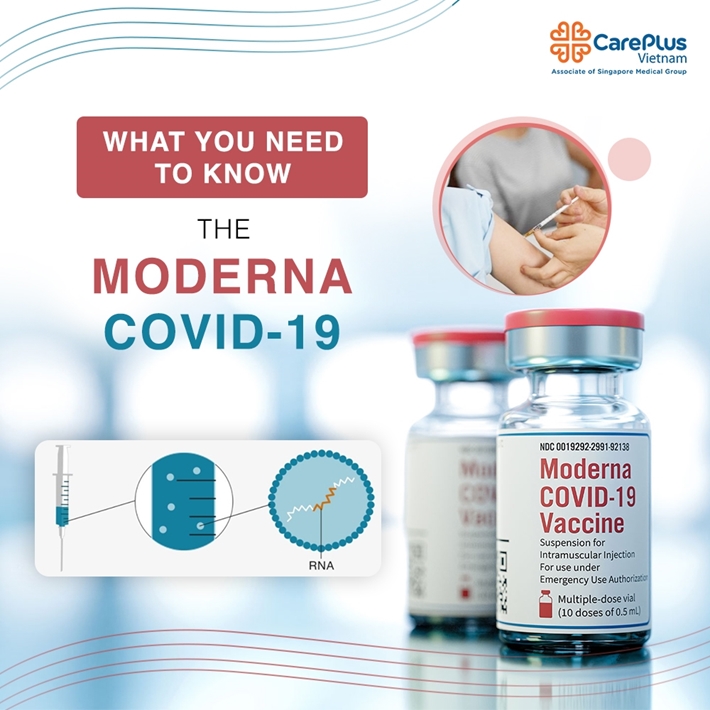The Moderna COVID-19 Vaccine: What you need to know?
The WHO Strategic Advisory Group of Experts (SAGE) on Immunization has issued Interim recommendations for use of the Moderna mRNA-1273 vaccine against COVID-19 in people aged 18 years and older. Here is what you need to know.

7/15/2021 1:21:42 PM
Who should be vaccinated first?
As with all COVID-19 vaccines, health workers at high risk of exposure and older people should be prioritized for vaccination.
As more vaccine becomes available, additional priority groups should be vaccinated, with attention to people disproportionately affected by COVID-19 or who face health inequities.
Who else can take the vaccine?
The comorbidities studied in in the phase 3 clinical trial included chronic lung disease, significant cardiac disease, severe obesity, diabetes, liver disease and human immunodeficiency virus (HIV) infection. Vaccination is recommended for persons with such comorbidities that have been identified as increasing the risk of severe COVID-19.
Although further studies are required for immunocompromised persons, people in this category who are part of a group recommended for vaccination may be vaccinated after receiving information and counselling.
Persons living with HIV are at higher risk of severe COVID-19 disease. Known HIV-positive vaccine recipients should be provided with information and counselling.
Vaccination can be offered to people who have had COVID-19 in the past. But individuals may wish to defer their own COVID-19 vaccination for up to six months from the time of SARS-CoV-2 infection.
Vaccine effectiveness is expected to be similar in lactating women as in other adults. WHO recommends the use of the vaccine in lactating women as in other adults. WHO does not recommend discontinuing breastfeeding because of vaccination.
Should pregnant women be vaccinated?
WHO recommends the use of the COVID-19 vaccine in pregnant women when the benefits of vaccination to the pregnant woman outweigh the potential risks. To help pregnant women make this assessment, they should be provided with information about the risks of COVID-19 in pregnancy, the likely benefits of vaccination in the local epidemiological context, and the current limitations of safety data in pregnant women. WHO does not recommend pregnancy testing prior to vaccination. WHO does not recommend delaying pregnancy or terminating pregnancy because of vaccination.
Who should not take the vaccine?
Individuals with a history of severe allergic reaction to any component of the vaccine should not take this or any other mRNA vaccine.
While vaccination is recommended for older persons due to the high risk of severe COVID-19 and death, very frail older persons with an anticipated life expectancy of less than 3 months should be individually assessed.
The vaccine should not be administered to persons younger than 18 years of age pending the results of further studies.
What’s the recommended dosage?
SAGE recommends the use of the Moderna mRNA-1273 vaccine at a schedule of two doses (100 µg, 0.5 ml each) 28 days apart. If necessary, the interval between the doses may be extended to 42 days.
Studies have shown a high public health impact where the interval has been longer than that recommended by the EUL. Accordingly, countries facing a high incidence of COVID-19 combined with severe vaccine supply constraints could consider delaying the second dose up to 12 weeks in order to achieve a higher first dose coverage in high priority populations.
Compliance with the full schedule is recommended and the same product should be used for both doses.
Is it safe?
On 30 April, WHO listed the Moderna vaccine for emergency use. WHO’s Emergency Use Listing (EUL) assesses the quality, safety and efficacy of COVID-19 vaccines and is a prerequisite for COVAX Facility vaccine supply.
The EMA has thoroughly assessed the data on the quality, safety and efficacy of the Moderna COVID-19 vaccine and authorized its use across the European Union.
SAGE recommends that all vaccinees be observed for at least 15 minutes after vaccination. Those who experience an immediate severe allergic reaction to the first dose should not receive additional doses.
Longer-term safety assessment involves continued follow up of clinical trial participants, as well as specific studies and continued surveillance of secondary effects or adverse events of those being vaccinated in the roll out.
The Global Advisory Committee on Vaccine Safety, a group of experts that provides independent and authoritative guidance to the WHO on the topic of safe vaccine use, receives and assesses reports of suspected safety events of potentially international impact.
How efficacious is the vaccine?
The Moderna vaccine has been shown to have an efficacy of approximately 94.1 per cent in protecting against COVID-19, starting 14 days after the first dose.
Does it work against new variants?
Based on the evidence so far, the new variants of SARS-CoV-2, including the B.1.1.7 and the 501Y.V2, do not alter the effectiveness of the Moderna mRNA vaccine. The monitoring, collection and analysis of data on new variants and their impact on the effectiveness of COVID-19 diagnostics, treatments and vaccines continues.
Does it prevent infection and transmission?
We do not know whether the vaccine will prevent infection and protect against onward transmission. Immunity persists for several months, but the full duration is not yet known. These important questions are being studied.
In the meantime, we must maintain public health measures that work: masking, physical distancing, handwashing, respiratory and cough hygiene, avoiding crowds, and ensuring good ventilation.